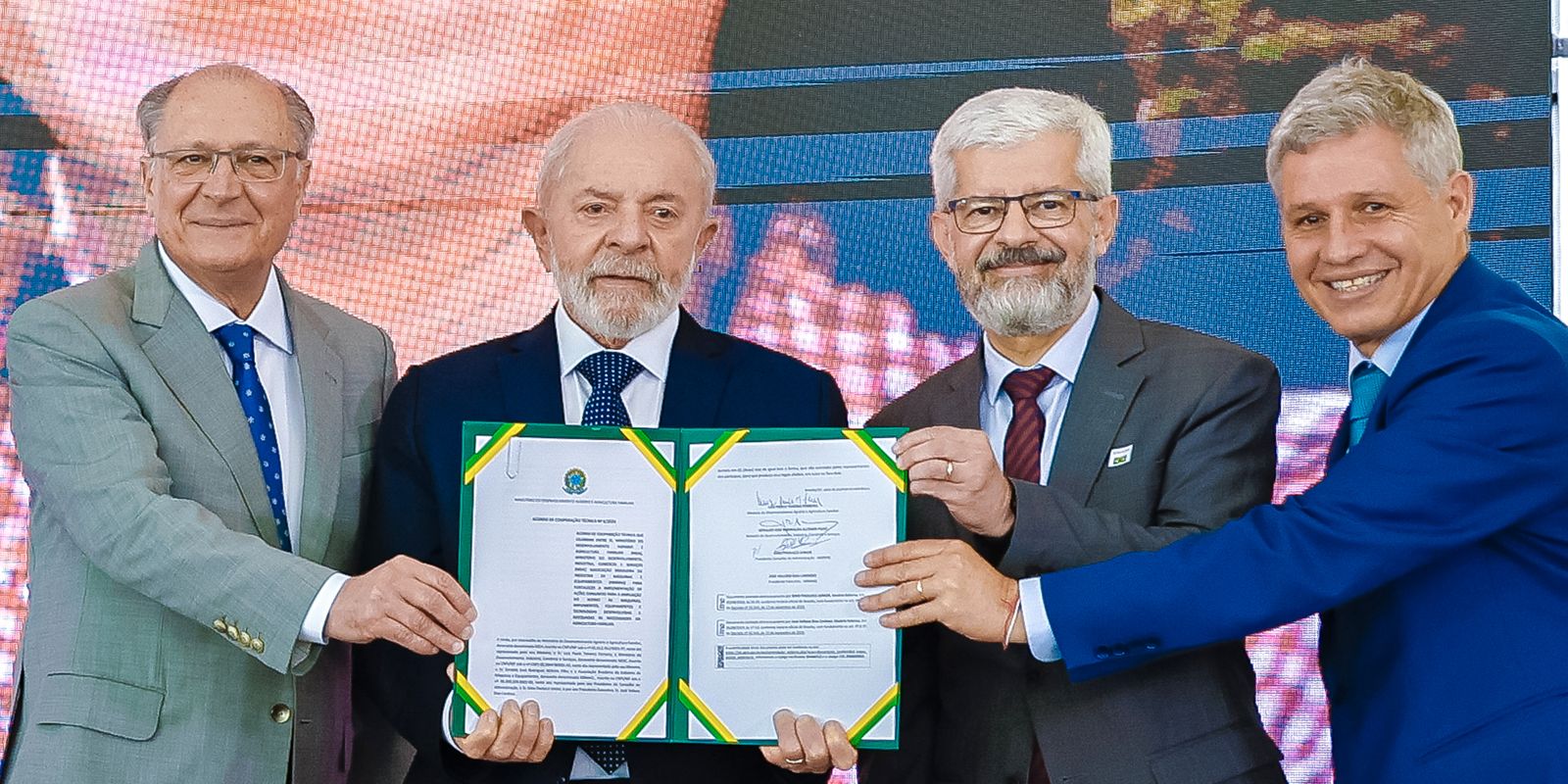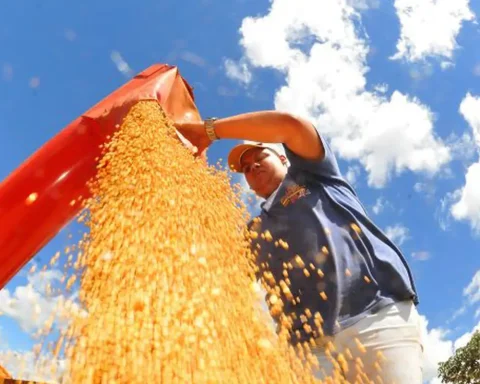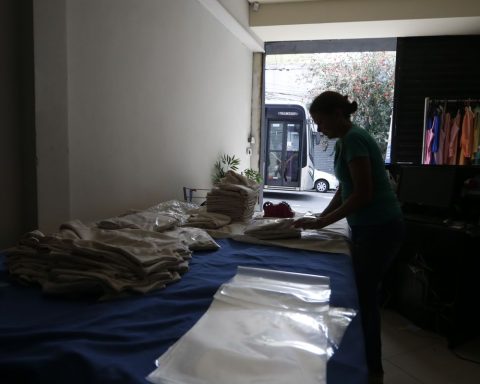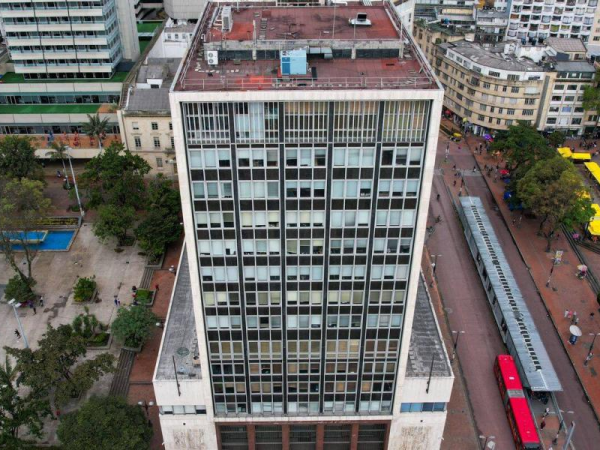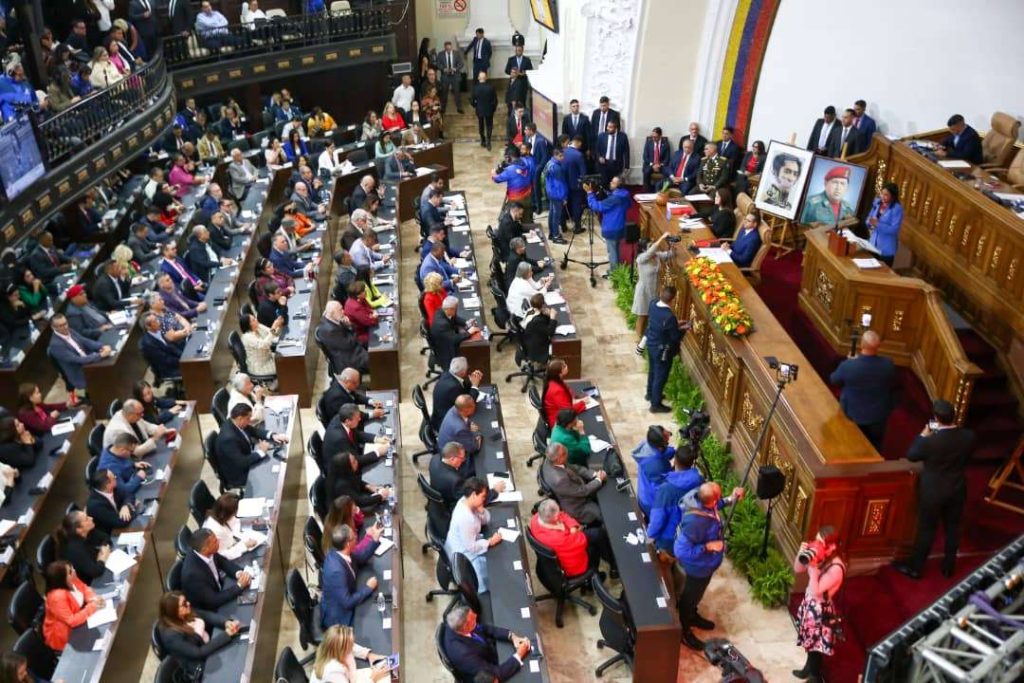The federal government presented this Tuesday (3) the investments being made to boost sustainable and digital agro-industrial chains by 2029. The resources total R$546.6 billion, of which R$296.3 billion from the private sector and R$ 250.2 billion in public credit lines.
During a ceremony at Palácio do Planalto, President Luiz Inácio Lula da Silva signed a decree creating the National Research and Innovation Program for Family Agriculture and Agroecology (PNPIAF). The objective is to promote research and innovation actions aimed at family farming, with an emphasis on the agroecological transition, territories, the preservation of biomes and the sustainability of agroecosystems.
“The push is for a more innovative industry, then a greener industry, a more sustainable industry”, said the vice-president and minister of Development, Industry, Commerce and Services, Geraldo Alckmin, about the various acts announced.
The projects are linked to Mission 1 of New Industry Brazil (NIB). Launched in January this year, the NIB is an industrial policy with six missions related to expanding autonomy, ecological transition and modernization of the industrial park. The program focuses on the agroindustry, health, urban infrastructure, information Technologybioeconomy and defense and aims to boost national development by 2033 with instruments such as subsidies, low-interest loans and increased investments.
Of the public resources for Mission 1, R$198.1 billion have already been allocated in 2023 and 2024 and R$52.18 billion are available until 2026. Private sector amounts must be invested until 2029, involving 10 organizations and agro-industrial associations.
Among the mission’s priorities are the dissemination of the use of precision agriculture, encouraging the national production of drones, and the expansion of the fertilizer and biofertilizer production chain, to reduce Brazil’s dependence on these imported inputs. Furthermore, the government wants to strengthen the national production of agricultural machinery and its parts and components.
More credit
The news announced today is that Banco do Brasil will join the Mais Produção Plan (P+P) as the new financing arm of NIB, with R$101 billion. As a result, resources for industrial policy reach R$507 billion in credit lines.
In addition to Banco do Brasil, the Mais Produção Plan provides resources through the National Bank for Economic and Social Development (R$ 259 billion), Caixa (R$ 63 billion), Finep – a public company linked to the Ministry of Science, Technology and Innovation (R$51.6 billion), Banco do Nordeste (R$16.7 billion), Banco da Amazônia (R$14.4 billion) and Embrapii (R$1 billion).
During the event, the Ministry of Agriculture and Livestock and Petrobras signed an agreement to strengthen the production and development of fertilizers and inputs for plant nutrition. The term provides for the expansion and modernization of factories for national fertilizer production; training of professionals; development of advanced technologies; improvement of infrastructure and logistics; transfer of technology; in addition to sustainable rural development.
Banco do Nordeste (BNB) also signed a contract with the company Inpasa to finance a new corn and sorghum ethanol factory in Maranhão. With financing of R$600 million from BNB, the project will have a total investment of R$1.3 billion, including private resources.
Furthermore, Finep signed two contracts, worth R$250 million each, for the development of innovative products for the agricultural sector. The first of these was with the company Ouro Fino Saúde Animal for the development of the world’s first single-dose vaccine against Glässer’s disease for pigs.
Finep’s other agreement was with Lar Cooperativa Agroindustrial and provides for the development of solutions linked to food and supplies for poultry, seeking to automate processes and use new technologies.
Goals
One of the goals of Mission 1 of the NIB policy is to increase the growth of GDP Agroindustry Income (production of wealth through optimal income) to 3% per year, in 2026, and 6% per year, in 2033. In 2023, GDP Income of agroindustry in 2023 was R$761 billion and the average growth from 2019 to 2023 was 1.75%.
Another objective is to increase the mechanization of family farming to 28% in 2026 and 35% in 2033. According to the Agricultural Census of the Brazilian Institute of Geography and Statistics (IBGE), in 2023, the rate of mechanization of family farming reached 25%.
The third goal is to increase the technology of family farming to 43% in 2026 and 66% in 2033. Technification is the use of agricultural equipment and technologies that go beyond mechanization. Currently, only 35% of establishments are technology-enabled.
Attracting investments
During the event, Alckmin presented a balance of private investments already announced within the scope of NIB, totaling R$ 1.831 trillion. For the urban infrastructure sector, 1.06 trillion was allocated; for Information and Communication Technology (ICT), R$100.7 billion; for the automotive sector, R$130 billion; for agroindustry, R$296.3 billion. R$100 billion were also allocated to the steel sector, R$105 billion to the pulp and paper sector and R$39.5 billion to health.
